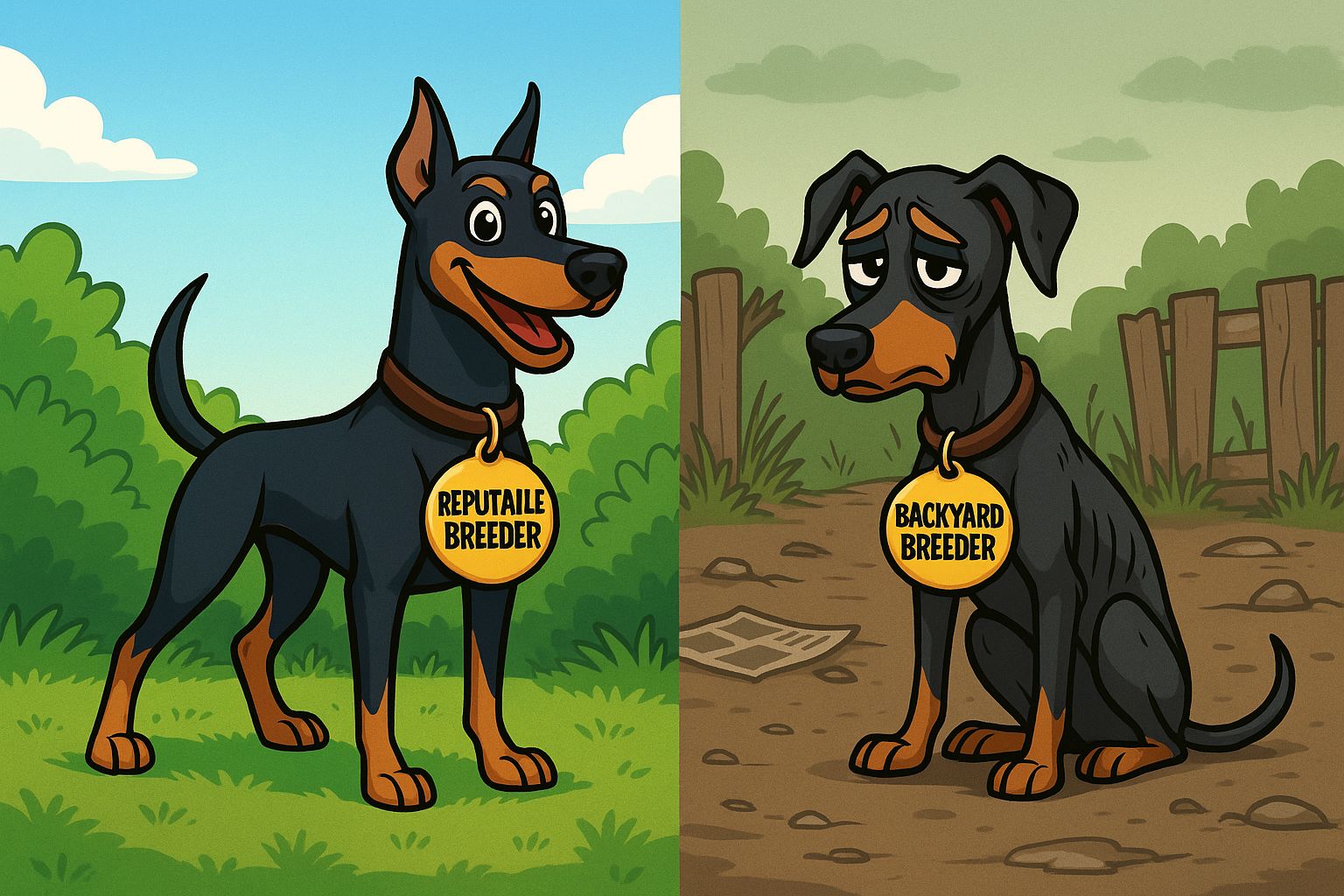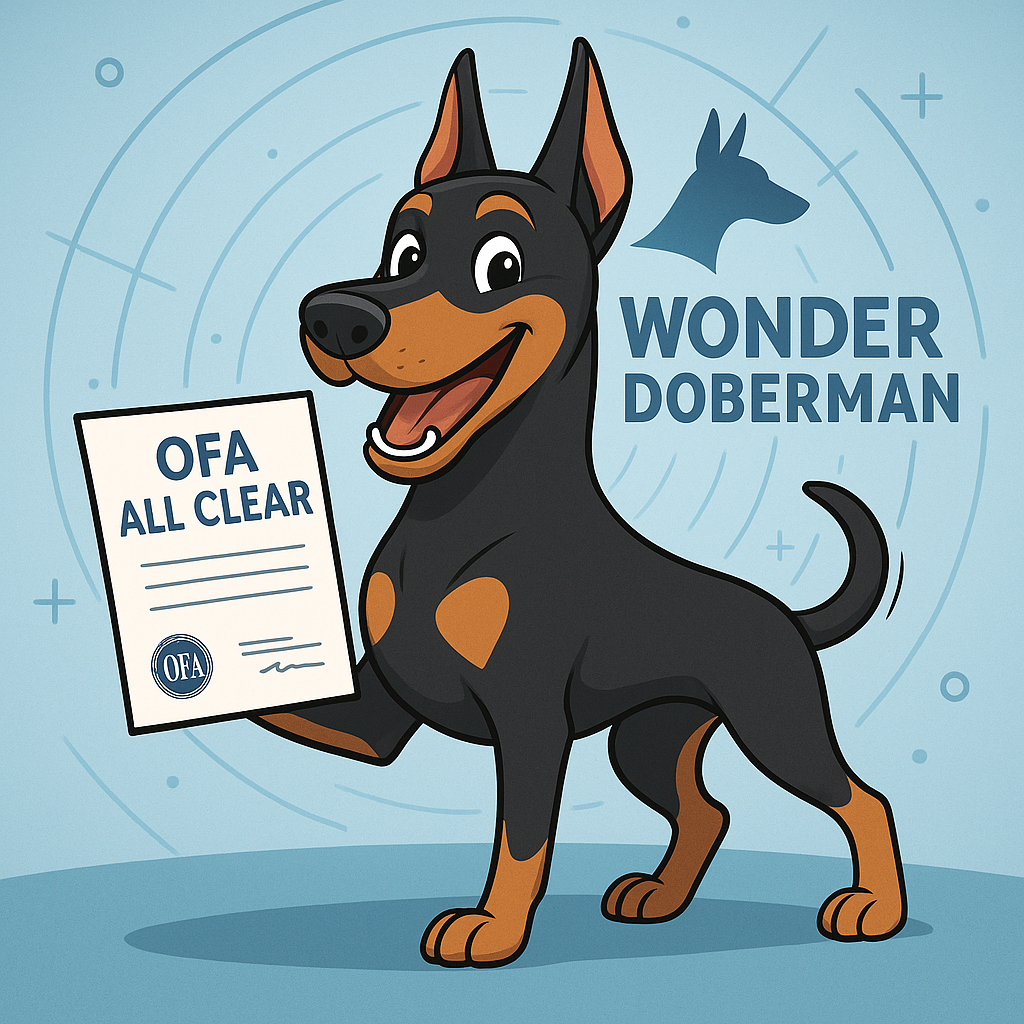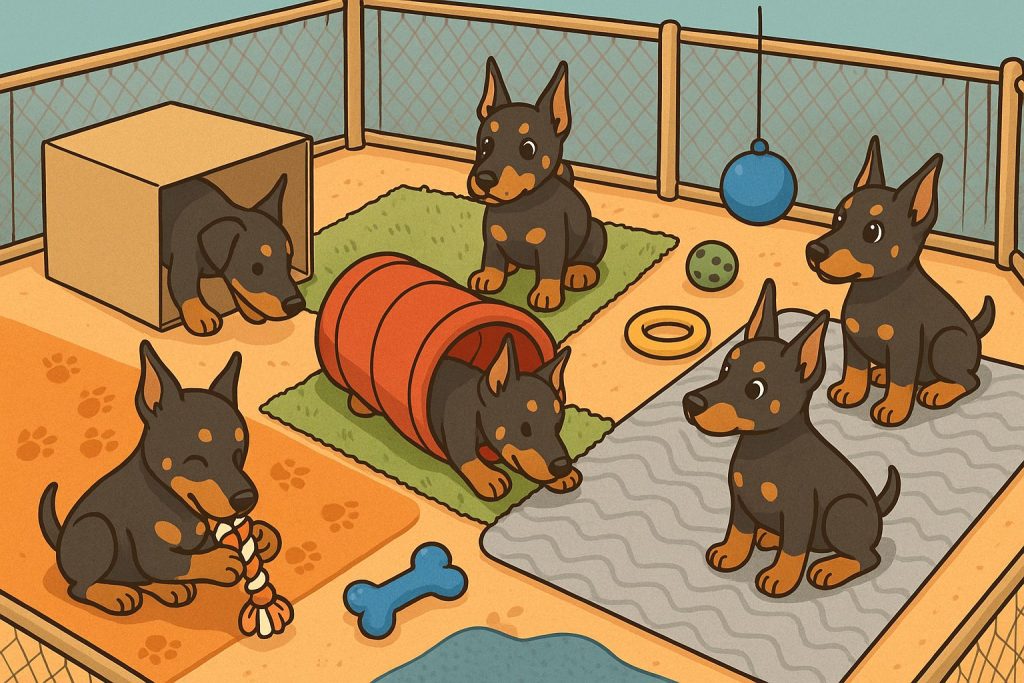How to Choose a Reputable Doberman Breeder

Bringing a Doberman Pinscher into your home is an incredibly exciting decision, but it also comes with tremendous responsibility. One of the most critical choices you will make is selecting the right breeder. A reputable Doberman breeder doesn’t just produce puppies that look good; they invest deeply in health testing, responsible socialization, and preserving the integrity of the breed.
Unfortunately, because Dobermans are so popular, many unscrupulous breeders and puppy mills capitalize on demand, producing litters without proper care or genetic screening. Puppies from such sources often suffer from health and behavioral problems that can create heartbreak and financial strain. That’s why it is essential to understand what separates a responsible Doberman breeder from a backyard breeder or puppy mill—and how to tell the difference.
In this comprehensive guide, you’ll learn what to look for, which questions to ask, and what red flags to avoid, so you can bring home a puppy who will be a happy, healthy companion for years to come.
Table of Contents
Take Time to Learn About the Breed
Before you contact any breeder, spend time researching the Doberman Pinscher thoroughly. Understanding the breed’s unique characteristics will help you recognize a breeder’s commitment—or lack thereof.
You can check our post on breed origins here.
Dobermans are intelligent, energetic, and deeply loyal. They thrive on structure, training, and plenty of exercise. They are natural protectors and require consistent socialization to grow into stable, confident adults.
They are also prone to several significant health issues:
- Dilated Cardiomyopathy (DCM): A serious heart condition that is unfortunately common in Dobermans. Reputable breeders perform annual Holter monitoring (24-hour ECG) and echocardiograms on breeding dogs to screen for signs of disease.
- von Willebrand’s Disease: A bleeding disorder detectable by DNA testing. DNA testing is one of the basic important test to do. Be careful about breeder who say that DNA test means nothing, it does mean A LOT!
- Hip Dysplasia: A malformation of the hip joint, which responsible breeders screen for with OFA or PennHIP evaluations.
- Eye Conditions: Hereditary eye diseases can be screened by CERF or similar exams.
While many breeds have thyroid concerns, it is important to note that thyroid testing in Dobermans has limitations in accuracy. Lack of thyroid testing alone should not automatically disqualify a breeder if they are transparent about the known issues in their lines and demonstrate rigorous screening elsewhere.
It’s important to understand that thyroid testing in Dobermans is far from foolproof. You could test the same dog five times in a row on the same day and get perfectly normal (negative) results every time, then run a sixth test just hours later and suddenly see a positive reading indicating hypothyroidism. That’s because thyroid levels naturally fluctuate throughout the day, and even factors like whether the dog has eaten recently can significantly impact the results. For example, testing right after a meal can sometimes alter hormone levels and skew the readings.
Because of these variables, detecting thyroid problems with complete certainty is very difficult, and even a dog that appears “clear” on repeated tests may still develop thyroid issues over time.
Understand What Transparency Looks Like
A reputable Doberman breeder is transparent and proud of their program. They are eager to educate buyers and demonstrate that their practices exceed minimum standards. However, transparency doesn’t mean you get unrestricted access to everything—especially in ways that could endanger vulnerable puppies.
Expect a reputable Doberman breeder to:
- Invite you to see their facility or home environment when it is safe for the puppies.
- Provide photos and videos of the puppies’ whelping area if visits are restricted to prevent disease. The puppy room is typically the cleanest, most controlled space in the breeder’s home, and it is perfectly reasonable (and in fact recommended) to avoid letting visitors enter that room. Pathogens tracked in on shoes or clothing can devastate an entire litter.
- Introduce you to the dam (the mother), provided she is comfortable. Some mothers are more protective than normal when they have puppies. A breeder may ask you to wait until the puppies are a bit older before meeting her, or they may show you photos and videos if she is stressed by visitors. This is normal and responsible.
- Explain where the sire (the father) lives. Not all sires live on-site. In fact, reputable breeders often use outside stud dogs to diversify the gene pool and avoid inbreeding. Sometimes these males live with another breeder, or with a guardian family. The breeder should be happy to share information and health certifications on the sire even if you cannot meet him in person.
Health Testing Should Be Rigorous—and Proven
Health testing is the foundation of any reputable breeding program. If you encounter a breeder who says their dogs are “vet checked” but cannot produce official records, walk away.

A responsible Doberman breeder should provide:
- Annual Holter monitoring: A 24-hour ECG to detect early arrhythmias associated with DCM. This is more reliable than echocardiogram alone.
- Echocardiogram: A cardiac ultrasound to assess heart structure and function. Ideally, breeding dogs have both a Holter and an echo annually.
- vWD DNA test: To confirm whether the dog is clear, carrier, or affected by von Willebrand’s disease.
- Hip and elbow evaluations: OFA or PennHIP certificates proving joints are within acceptable standards.
- Eye certification: From CERF or a similar registry.
- Other testing as appropriate: Though thyroid testing is sometimes performed, current veterinary consensus is that no thyroid test is fully reliable as a screening tool in Dobermans. A breeder may choose to test, but absence of thyroid certification should not be the sole reason to disqualify a program if all other health measures are in place.
Always ask for copies of certificates. Any reluctance to share them is a major red flag.
Socialization Is a Priority
Early socialization plays a huge role in your puppy’s lifelong confidence and stability. A reputable breeder follows a structured early development program.
Look for a breeder who will share their socialization approach with you. They should be comfortable explaining:
- How the puppies are handled daily.
- What sights, sounds, and surfaces the puppies experience.
- How they are gently exposed to different people and safe environments as they grow.
- Whether they introduce crates, litter training, or other age-appropriate skills.
Puppies should be raised indoors as part of the family, not in isolation. Even if you can’t enter the whelping room, you should see evidence that the puppies are being raised in a clean, enriched environment.
You can see our entire post on socialization here
Contracts, Guarantees, and Lifetime Support
A reputable breeder will provide a written contract that clearly outlines your mutual expectations.
Expect the contract to include:
- A detailed health guarantee (often covering congenital defects for a set period).
- A requirement that you return the dog to the breeder if you cannot keep it.
- Spay/neuter terms if appropriate.
- A commitment to lifetime support and advice.
Backyard breeders often skip contracts or offer vague promises. A clear, professional contract shows the breeder stands behind their puppies.
How to Recognize Knowledge and Passion
Ethical, reputable Doberman breeders are passionate about improving and preserving the breed. Look for someone who:
- Belongs to Doberman clubs and participates in shows, working events, or canine sports.
- Is committed to learning and keeping up with health research.
- Asks you detailed questions about your experience, lifestyle, and plans for the puppy.
- Takes the time to educate you, rather than rushing to close a sale.
Red Flags to Watch For
Here are some common signs you are dealing with an irresponsible breeder or puppy mill:
- Multiple litters always available.
- No health testing, or testing limited to a single vet check.
- No questions about your suitability as an owner.
- Willing to ship a puppy with no screening or contract.
- Puppies sent home before 8 weeks of age.
- Allowing visitors to walk directly into the puppy whelping area with no sanitary measures.
The Role of the Sire
Many first-time buyers assume that if the father isn’t on site, something must be wrong. The reality is that responsible breeders frequently use sires from other kennels to improve genetic diversity and strengthen their lines.
Here’s why this is often a positive sign:
- It shows the breeder is invested in careful pedigree planning.
- It reduces the risk of inbreeding depression.
- It allows access to stud dogs with health and performance certifications that complement the dam’s qualities.
As long as the breeder provides all health certifications and pedigree records for the sire, there is no disadvantage to him living elsewhere.
Visiting Puppies Without Risking Their Health
Many new owners are eager to visit puppies, and it’s normal to want to see where your puppy is raised. But be aware that reputable breeders must balance your desire to visit with the puppies’ safety.

Why you might not be allowed into the puppy room:
- Young puppies have fragile immune systems. Even a visitor’s shoes can track in deadly viruses like parvovirus.
- Responsible breeders maintain strict sanitation protocols to keep the whelping area clean.
- Most reputable breeders will instead invite you to meet the puppies in a designated area once they are older and have had their first vaccinations.
This policy is not secrecy—it is biosecurity. A breeder who cares about their puppies will always prioritize health over appearances.
Getting References and Following Up
A reputable Doberman breeder should be able to provide references from past puppy buyers and professional contacts. Follow up with these references and ask about:
- Their experience with the breeder’s communication.
- The health and temperament of their dog.
- How the breeder has supported them after the sale.
You can also reach out to your local Doberman club for recommendations (DPCA).
Final Thoughts
Finding a reputable Doberman breeder is not something you can do in a weekend. It requires research, patience, and a willingness to ask difficult questions. But the effort you invest now will reward you with a healthy, well-socialized companion who enriches your life for years to come.
Remember: the cheapest or fastest option is rarely the best. An ethical breeder is not just selling you a puppy—they are investing in your dog’s future and standing by you every step of the way.
If you ever feel uncertain, trust your instincts and keep looking. The right breeder will welcome your questions, respect your diligence, and demonstrate their commitment to the breed.
Your Doberman deserves nothing less.
